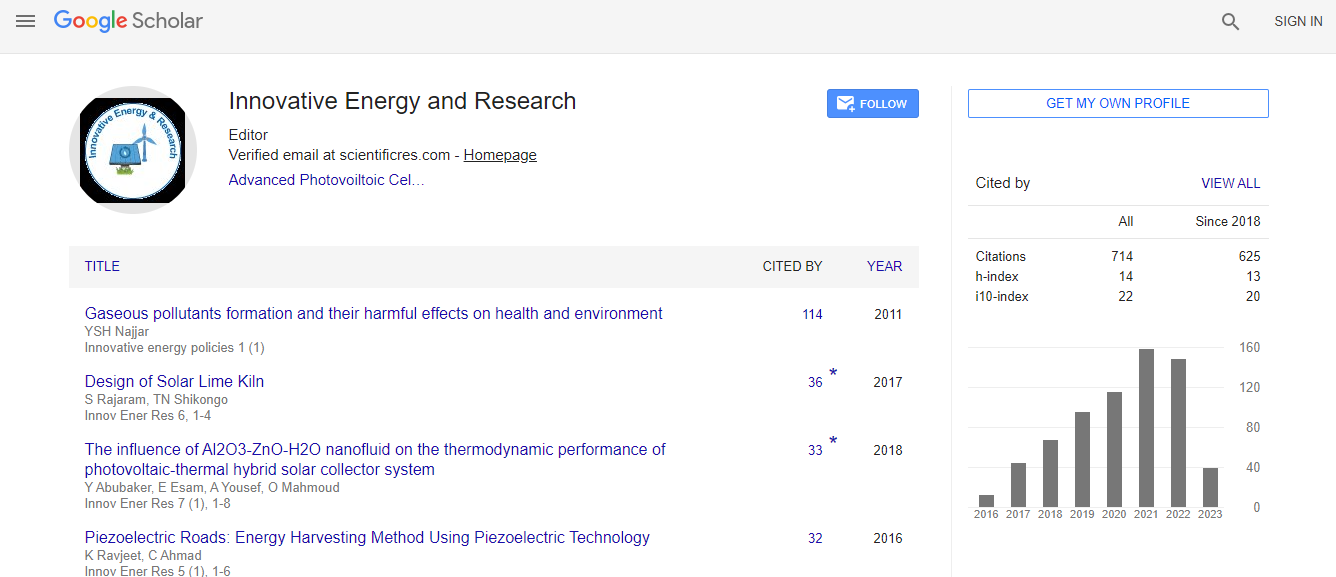Research Article
Biodiesel Production from the Seeds of Mimusops elengi Using Potassium Aluminium Silicate as Novel Catalyst
Srinivasan GR1*, Palani S2 and Ranjitha J11Vellore Institute of Technology, Vellore, Tamil Nadu, India
2Women’s Christian College, Chennai, Tamil Nadu, India
- *Corresponding Author:
- Gokul Raghavendra Srinivasan
Department of Energy and Environmental Engineering
Vellore Institute of Technology, Vellore
Tamil Nadu, India
Tel: 9841265865
E-mail: gokusrinivasan@gmail.com
Received date: July 04, 2017; Accepted date: July 17, 2017; Published date: July 24, 2017
Citation: Srinivasan GR, Palani S, Ranjitha J (2017) Biodiesel Production from the Seeds of Mimusops elengi Using Potassium Aluminium Silicate as Novel Catalyst. Innov Ener Res 6:165.
Copyright: © 2017 Srinivasan GR, et al. This is an open-access article distributed under the terms of the Creative Commons Attribution License, which permits unrestricted use, distribution, and reproduction in any medium, provided the original author and source are credited.
Abstract
Biodiesel is considered as most promising alternative for fossil fuels because of its robust combustion characteristics and self-sustainability. Identifying a suitable feed stock with good lipid content, optimized reaction parameters will help standardizing this fuel globally. This paper deals with production of biodiesel from the oil of Mimusops elengi by heterogeneous catalyzed transesterification reaction. Methanol in stoichiometric molar ratio was used as the solvent for reaction whereas potassium aluminium silicate was used heterogeneous catalyst with a weight corresponding to weight of oil. Maximum oil content present in the seed was found to be 13%, which was determined using Soxhlet’s extraction and the dominant acids found in the extracted oil were stearic acid and Palmitic acids. The molar ratio was found out to be 1:9, with catalyst concentration of 2% weight of oil, for a temperature of 60oC. A maximum yield of 73.4% was obtained using this novel catalyst with stearate as dominant methyl ester. The novel catalyst can be reused again for the reaction without compromising the conversion yield.

 Spanish
Spanish  Chinese
Chinese  Russian
Russian  German
German  French
French  Japanese
Japanese  Portuguese
Portuguese  Hindi
Hindi 
